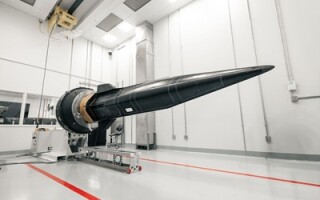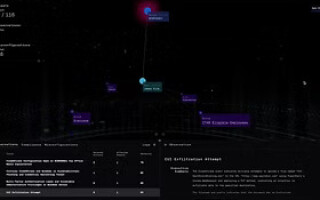AI- and HPC-ready platform gets DARPA nod
NewsApril 03, 2025

SUNNYVALE, Calif. Supercomputing company Cerebras Systems announced it won a new contract from the U.S. Defense Advanced Research Projects Agency (DARPA) for the development of a state-of-the-art high-performance computing system -- optimized for real-time artificial intelligence (AI) and high-performance computing (HPC) -- that is ultimately aimed at use in the U.S. defense sector and by commercial concerns.
Company officials assert that the Cerebras system will combine the power of the Cerebras wafer-scale technology and partner company Ranovus’s wafer-scale co-packaged optics to deliver several orders of magnitude better compute performance at a fraction of the power draw. According to the company announcement, the Cerebras Wafer-Scale Engine has 7,000 times more memory bandwidth than GPUs, and as a result delivers the world’s fastest AI inference and the world’s fastest molecular simulations ever conducted.
Andrew Feldman, co-founder and CEO of Cerebras, said that the Cerebras platform combines wafer-scale technology and co-packaged optics interconnects to realize real-time, high-fidelity simulations for the most challenging physical-environment simulations and the largest-scale AI workloads. "Building on the successes of the DARPA’s Digital RF Battlespace Emulator (DRBE) program, where Cerebras is currently executing the third phase and delivering a leading-edge RF emulation supercomputer, in this new initiative Cerebras and its partner Ranovus will deliver the industry-first wafer-scale photonic interconnect solution.”
As part of this new DARPA contract, Cerebras is tasked with solving the communications bottleneck by integrating advanced co-packaged optics interconnects from Ranovus, which will enable compute performance impossible to achieve today even in the largest of supercompute clusters. They expect that this solution will be orders of magnitude faster than today’s state of the art computing solutions and will deliver this performance at a fraction of the power consumed by GPUs tied together with traditional switches.
It is expected that the HPC solution will be extremely useful for performing real-time AI tasks directly from information processing sensors, as well as in real-time simulations of battlefields and military and commercial robotics.






